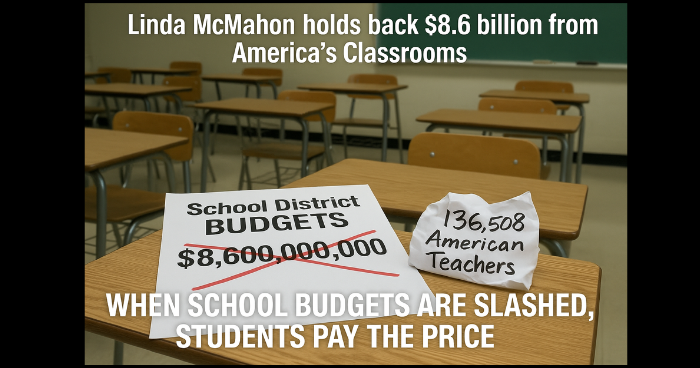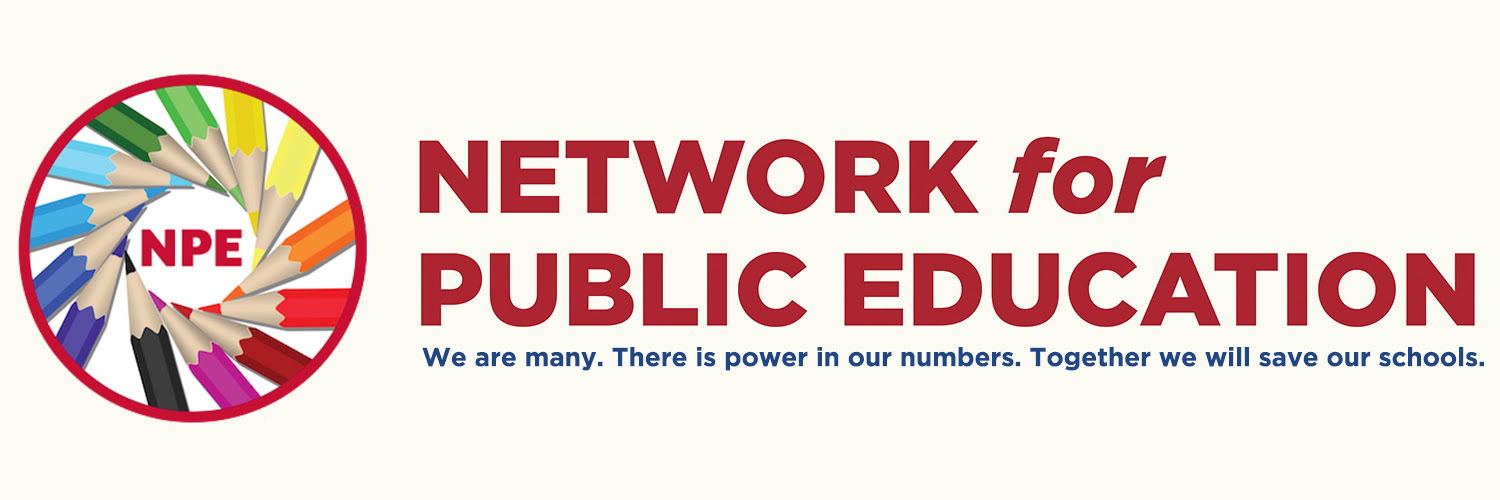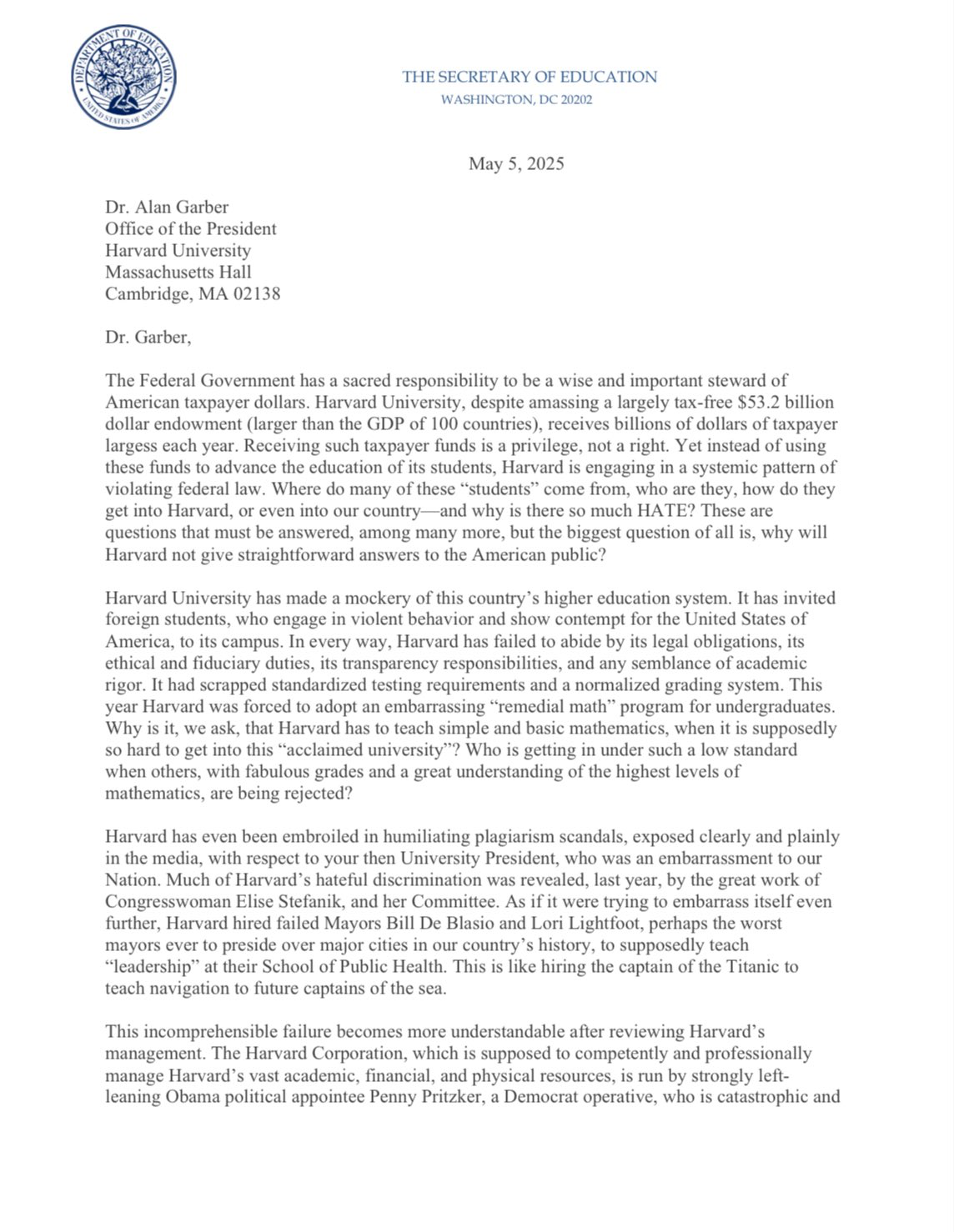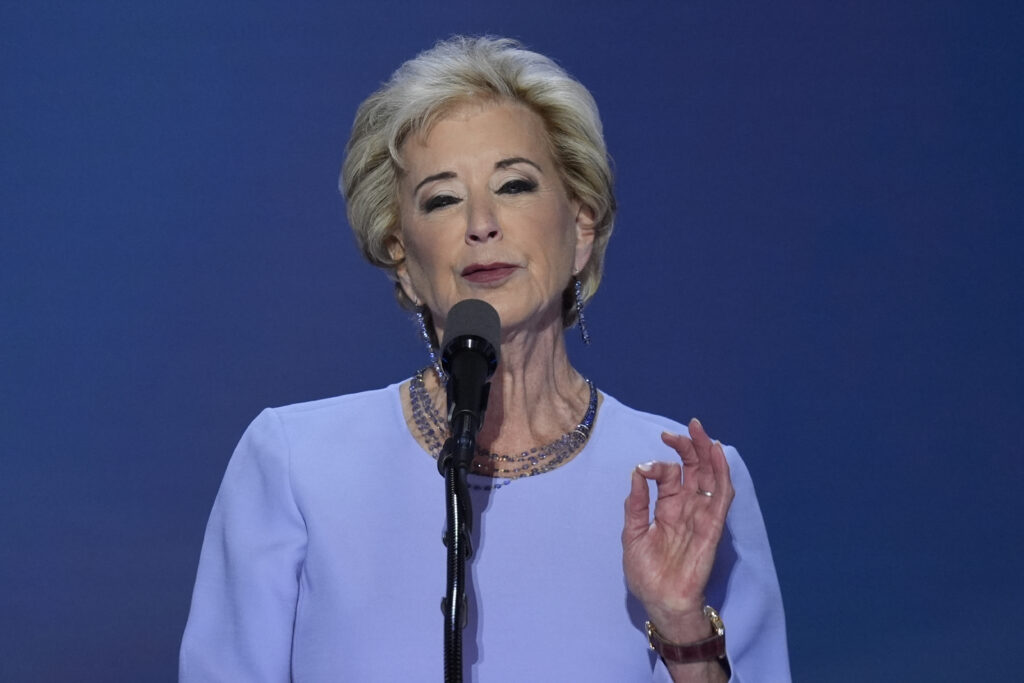
U.S. Secretary of Education Miguel Cardona, left, speaks to members of the Education Writers Association at annual conference.
Credit: Mallika Seshadri / EdSource
Secretary of Education Miguel Cardona answered questions about this year’s rocky rollout of the new Free Application for Federal Student Aid Application (FAFSA), civil rights violations and Covid recovery, among other topics, on Thursday, at the Education Writers Association’s annual conference in Las Vegas.
Erica L. Green, a White House correspondent for The New York Times moderated the discussion — which was followed by a Q&A from the audience.
“I have the opportunity to see as a father, what my daughter and my son are experiencing as students, and it fills me with joy to see the promise, the opportunities that are available,” he told the audience in his opening remarks. “And that’s what we’re fighting for in this Biden/Harris administration.”
Here are the highlights from his discussion on current issues in education, which have been edited for length and clarity:
Does the department understand the “gravity” of this year’s rocky FAFSA rollout?
As frustrating as it was to be a secretary of education, to see the delays and the setbacks that we were having, I know it was much more frustrating for families, for students, for school leaders. But we’re also aware that this system, right now, is going to get better, and it’s going to continue to get better every year. You know, we’re at 10.4 million submissions. We’re 11% lower than we were last year, which is something that we’re working directly to address. Then applications are being processed. We’re working with colleges very closely. We’re working with superintendents, parents, community partners — (this) is all hands on deck.
Did student loan debt take precedence over the FAFSA rollout?
As a first [generation] college student, the system wasn’t working for too many Americans in this country. … I would be more frustrated with myself if I looked back and I didn’t do anything about it (the FAFSA rollout).
We’ve been devoting resources to FAFSA since we got in. We recognized early on that it needed to be delayed, and we continue to find ways to move it along. But no, the idea of we took resources away from (the effort to reduce student debt) to do that (revamping FAFSA) is false.
We have a very aggressive agenda to fix a broken system. We fix Public Service Loan Forgiveness. Seven thousand people got it in four years over the last administration. Ninety percent of people were denied. Now we have over $50 billion just in debt relief for teachers, nurses, service members, people that are serving our community. So, there is a lot of work that we are doing to fix a broken system. Improving FAFSAs is part of that.
Is the Office of Civil Rights ready to tackle a constantly growing load?
There’s an influx of practices that promote exclusion, that target students who, many times, are already vulnerable. We’re seeing, in many states, laws being passed that really, in my opinion, divide and make students feel less welcome in schools.
We are prepared. We are pushing for additional funding for investigators when these cases come forward. But we’re also being proactive through our officer-based partnerships. We’re not waiting for incidents to happen to then address it. We’re working very closely on creating materials (and) guidance resources. We work very closely with university leaders, K-12 leaders on what they could do. We redesigned our website to make sure that the resources that we have in D.C. are two clicks away….
We are working proactively but also being very intentional about communicating with both Democrats and Republicans that we have 60 less investigators now than we did in 2009. We have about three times as many requests for investigations. We need to make sure that we’re not just talking about supporting our students, but making sure we’re funding it.
Will cases be resolved by the end of this year?
Some cases take over a year because what the investigation request comes in as, often changes once we get people on the ground investigating. … I don’t want to speak to timelines and investigation in a hypothetical sense.
I will tell you they’re priority for OCR (the Office for Civil Rights). And what we’re doing is communicating the resolutions that we come up with. You know, the goals of these investigations are not just to say you were wrong, but to say this student was harmed, and you have to provide restitution. How are you going to do that so that this doesn’t happen again? We want to lift those up and make cases out of those in a way that other universities can learn from it.
How should districts navigate attacks to pipeline programs for specific demographics?
Let me start off by sharing an experience that I had: I was speaking at a commencement, and the word “equity” was scrubbed out of my bio. Let that sink in for a second.
The level of scrutiny that our leaders are under is ridiculous. In my conversations, whether it’s a college leader or a district leader, they’re telling me we have to navigate this. This is political interference. … We’re going to do everything in our power to make sure students feel welcome, are seen for who they are, respected, and let the political stuff stop at the doorstep.
Is the department prepared for potential attacks to key civil rights cases?
Nothing really surprises us. … We’ve seen book bans just take over. Forty-seven percent of the books that were banned were books on LGBTQI or BIPOC-themed. … What was once done in the shade is now being done in the sunlight. It doesn’t surprise me. We are prepared. I trust our educators to know how to make students feel welcome and supported and how to create a community in our schools.
Has the administration had an opportunity to be aggressive to get schools on track post-Covid?
We released the Raise the Bar strategy early on. We’ve been focusing on comprehensive schooling. … We were up to $200 million in full-service community schools, which helped address chronic absenteeism, parent engagement. … We’re focusing on career pathways. We have more states now that have career pathways. We have teacher apprenticeships in 30 states. We had zero when I came in.
In terms of mental health, we have 40% more school social workers, counselors, 25-30% more nurses. … What we’re doing is focusing on the core of what works. We know good teaching and learning works. We are really raising the bar on the teaching profession. … We’re defending public education, focusing on good Title I programming, making sure our students have access to multilingualism in this country. I’m talking about embracing multilingualism as a superpower.
What do you want to be remembered for?
We’re focusing on fixing the core of education — literacy, numeracy, giving students access to higher levels of that, addressing inequities in our schools by addressing mental health issues, by making sure we have a professional workforce that is respected and is going to want to come back.
We’re losing teachers. We have a lot of schools in our country that have 20-30% of the teachers are substitute teachers. So we’re doing that, and we’re improving affordability and access to higher education. To me, there’s no silver bullet. … It’s about really being student-centered and making sure we’re focusing on the things that actually move the needle in the classroom, while also addressing inequities by being bold.
Are Jewish students’ civil rights violated under Article 6 of the Civil Rights Act when that Jewish student is told that Israel should not exist?
If a student feels that they are being attacked for who they are — their faith or who they are, where they come from — and they feel that they’re being violated, or they feel harassed, it is the responsibility of the college to act. And if the investigation comes forward, it’ll be reviewed by the Office for Civil Rights.
Is anti-Zionism a civil rights Article Six violation?
We do take into consideration anti-Zionism in the investigations that we’ve made, as the executive board in the last administration requires us to do.
What are your thoughts on diversity, equity and inclusion bans?
Those programs are intended to make sure that (students) feel welcome on those campuses. That’s the bottom line. And there’s a myth out there that they promote only some and not others. Well then, fix it. I believe a lot of the issues that we’ve had in this country — in the last two months on campuses — could have been corrected with strong programs that support diversity, equity and inclusion, because they teach students, and they embrace a culture where you can disagree but still be a part of a community, which is what we didn’t see on some campuses.
So for me, as a Latino, it really concerns me because I remember my experience when I was the first one in my family going to a college, and I didn’t know anyone there. It’s programs like that that helped students like me, 30 years ago, feel welcome, seen and unapologetic for who they are.
What is the department’s plan to fund districts to reduce absenteeism? Is the department willing to call for grant proposals to address the challenge?
A big part of the focus of those full-service community schools is focusing on attendance. The funding for that since the president took office … is five times more. In our budget, we have a proposal for $8 billion. A big chunk of that would be for addressing chronic absenteeism. And there’s already $250 million in grants.
Do you release any form of guidance on book bans?
The biggest difference from my current position to every other position I’ve had since I was a fourth grade teacher is that I don’t influence, promote, dictate curriculum. Those decisions are state level decisions. …
For me, as a teacher, CRT (critical race theory) is culturally relevant teaching. … When we teach in a way that’s culturally appropriate with materials that reflect the beautiful diversity of our country, students engage better. We talk about chronic absenteeism, right, making students feel welcome and seen. We have the opposite happening. …
We are engaging through our Office of Civil Rights to provide support for those districts and how to handle situations like that and inform districts of what the rights are. We actually sent folks from the Office of Civil Rights … to states when requested to help them understand how to navigate political terrain, while doing what’s right for kids.
Where does special education fall in your top 10?
It’s very high, I would say; you know, definitely one of the priorities, but we address it by saying we need to fund our public schools. When I talk about defending public education, I recognize there are students with disabilities that need to make sure that public education dollars don’t dry up.
You know, when I was a school principal, we had ratios of like 25 to 30 students with special needs with one teacher. Those ratios just get higher. School counselor-to-student ratios are like 600 to 1 in a lot of parts of our country. When I talk about making sure we’re funding public education, it’s the students with disabilities that also are said to lose a lot if you don’t do that. …
I’m not into shiny things, I’m into what works in the classroom: funding Title I, funding our classrooms. Giving our schools the resources that they need will go to those special education students as well. …
Special education students or regular education students first. We can’t put them in a corner, put them in a box and say “these are your resources over here.” Every teacher should be qualified to serve students with disabilities.
Have schools spent enough Covid relief money on the priorities you outlined?
I do believe that districts focus on academic recovery, mental health support and making sure that facilities are safe for students to return. …
As these … dollars sunset, we’re passing the baton back for state and local leaders who recognize that when used well, we get students back to school, we close achievement gaps, we provide the mental health support that our students need. So, let’s not take our foot off the gas pedal. And, we have a blueprint of those priority areas that work, and we see data from our districts that show, when used well, it does work. We just can’t stop now.












